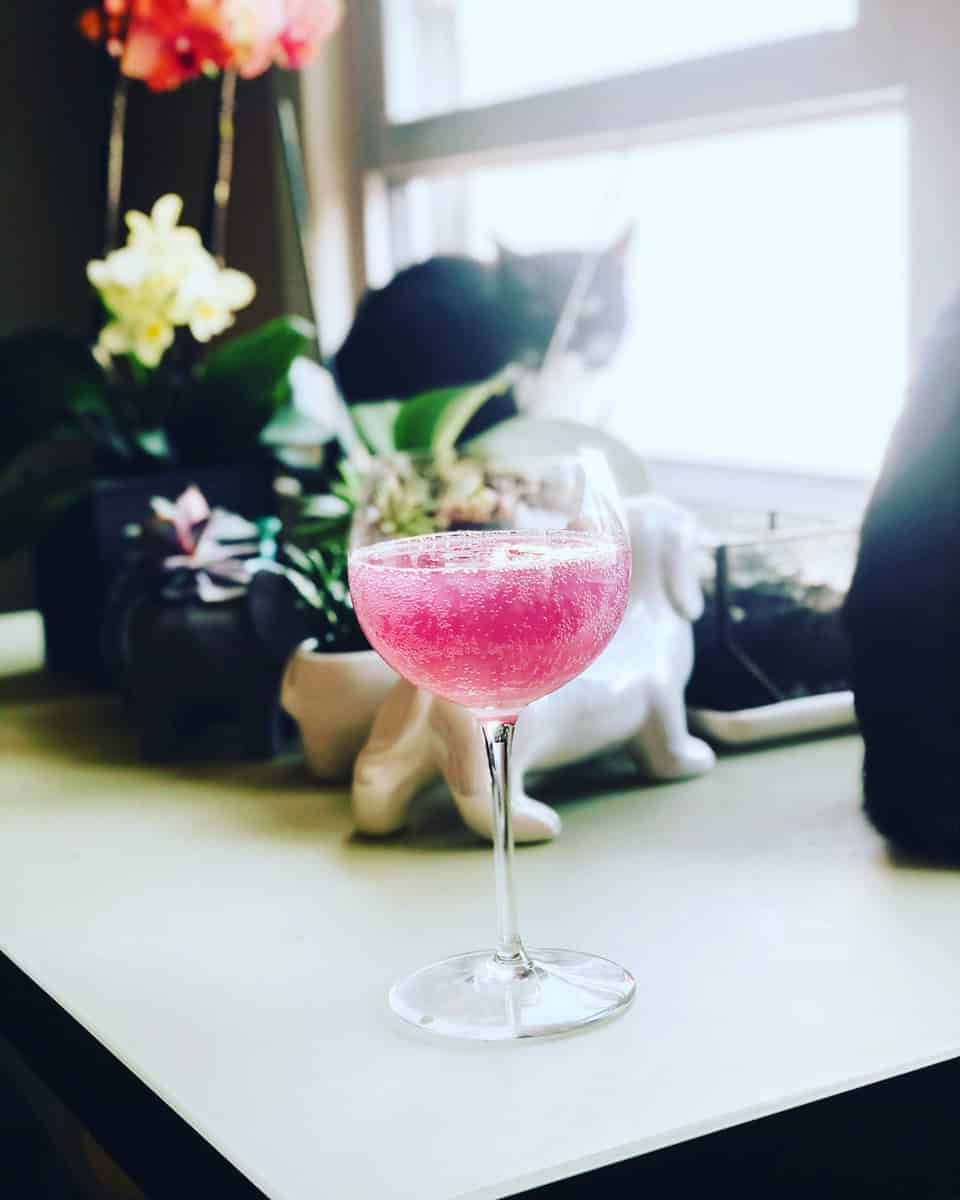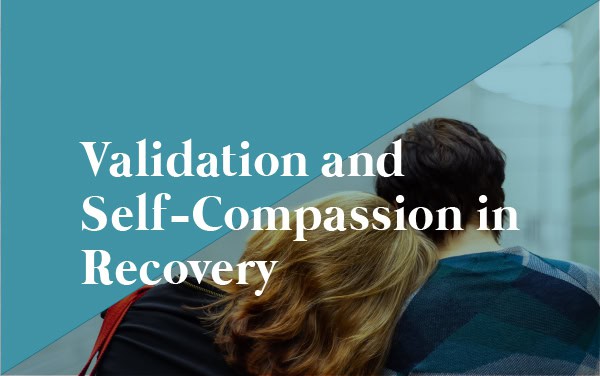
by RE Helper | Sep 15, 2023 | Alcohol Free, Blog, Early Sobriety, Healing, Helpful Tips, The first Year
Today’s blog entry is from Amanda McLean, who has been a member of Café RE since November 2019. Amanda has been alcohol free since March 26, 2019 and is very active within her Café RE GO community.
“Another day one, I’m such a loser.”
“I’ve ruined everything.”
“I’ll never get sobriety to stick.”
In my journey with alcohol abuse and recovery, these are just a few common mantras that run through my mind. I am someone who chronically struggles with self-judgment and negative self-talk. I know that my inner critic can be harsh and unforgiving. Since our thoughts drive our emotions, this unrelenting internal talk leads to painful feelings including anxiety, sadness, and low self-esteem. For many people, this self-hatred inner monologue and the associated feelings can lead to relapse or other forms of damaging behaviors. In my personal recovery journey, I have learned that being kind and supportive to myself during times of suffering is critical in maintaining my sobriety in recovery.
Avoidance is the Enemy
As Paul states in Recovery Elevator Episode 274 – I Feel Your Pain “In order to shift stagnant energy inside of us, we have to talk about our emotions.” Avoiding our thoughts and feelings never ends the way that we hope it will. And experts agree that one of the contributing factors to addiction is avoidance. As a person in recovery, I am guilty of minimizing, invalidating, and negating my feelings. But the more we avoid distress or attempt to suppress it, the worse it becomes. The more energy we use to push emotions like anxiety or anger away, the more powerfully those emotions come back toward us.
Another disadvantage of avoidance is that our bodies interpret avoidance as proof of danger, and this signals our internal alarm system. When my internal alarm system is activated, I often crave something to soothe my nervous system. Historically, I used and abused alcohol to calm my painful emotions. Although this solution proved to be immediate, it came with long term undesirable consequences including more painful emotions and negative self-talk. And thus, the cycle continued.
Start with Validation
Rather than avoiding negative self-talk and painful feelings that we would rather not face, we need to make a shift. We need to remember that the thought and the feeling are not the enemy. We need to remind ourselves that our thoughts and feelings are allowed to be here. We can tolerate discomfort. This starts with noticing the thought and/or the feeling and then providing validation.
Validation is useful for addressing any uncomfortable thought or feeling. It starts with acknowledging or labeling the feeling. For example, “I feel like I fail at everything, and this feels rough” or “I feel like I can’t do anything right and my entire body is tense” or “My chest feels tight and I feel so anxious”.
Once we acknowledge what we are feeling, we can then tell ourselves why it makes sense that we feel this way. In other words, tell yourself the story about why it makes sense that you feel the way that you feel. For example, “It makes sense that this feels rough because I worked a long day and now I am cooking dinner for my family while my kids argue”, or “It makes sense that I feel like I can’t do anything right and I am tense because my boss just snapped at me”, or “It makes sense that I am feeling anxious because this is my daughter’s first day at her new school and I am scared she won’t make friends”.
Self-Compassion
I know that feeling. That feeling of shame. When I was abusing alcohol, I didn’t want anyone else to know the things I had done. This is exactly when we need self-compassion. Self-compassion reminds me that I made a mistake but that does not mean that I am fundamentally a bad person. I can separate my worth as a person from my behavior.
When I fail to validate and hold my feelings, when I shame myself, I cannot learn from my mistakes. Shaming myself through self-judgement and self-criticism shuts down the learning receptors in the brain. Shame freezes a person. Self-compassion allows me to acknowledge and validate my thoughts and feelings, commit to not making the mistake again, and then forgive myself.
Dr. Kristin Neff, a pioneer in the field of self-compassion research, states that self-compassion is acting toward yourself the way you would act toward a cherished friend when you are having a difficult time, when you fail, or when you notice something that you don’t like about yourself. When something goes wrong or we have a difficult moment, avoiding or fighting against the suffering in that moment will only increase our anxiety, distress, and self-criticism. Self-compassion is a method for soothing or comforting our nervous system.
The 3 steps of Self-Compassion
When I was at the height of my alcohol abuse, waking up each morning feeling like a failure, the most common self-criticism that I heard in my head was, “I am such a loser”. More often than not, self-criticism caused me significant distress which led me to soothe my system with alcohol. In recovery, I have learned the value of self-compassion: giving myself kindness, care, and support.
Self-compassion involves three steps. First, I must hold the pain of my mistakes. This takes a lot of courage because I must acknowledge the pain I have caused myself and others. Second, I remember that pain and suffering are a part of being human and therefore other people have felt this way as well. I am not alone. Third, I must be kind to myself. Self-kindness means that I treat myself with sympathy, warmth, and patience.
Practicing these three steps may sound like, “I drank again and I was not present for my children and my husband. Other people struggle with repeated mistakes, and I am not the only person who has felt and experienced this pain. I have been through a lot this year and quitting alcohol is hard. AND I can do hard things.” From that space of openheartedness, I can do everything I can to commit to doing it differently in the future. This allows me to soothe my nervous system without using or abusing a harmful substance.
***By Amanda McLean; Café RE Go Group
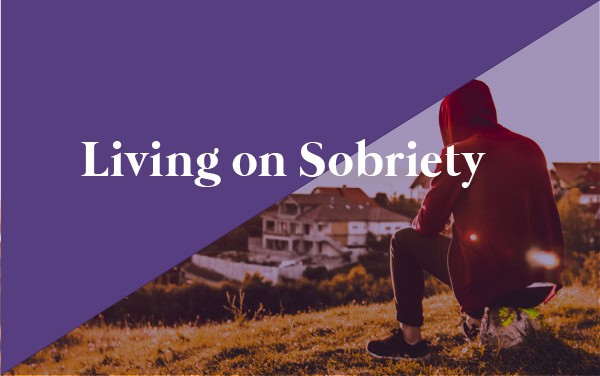
by RE Helper | Aug 15, 2023 | Alcohol Free, Blog, Early Sobriety
Recovery Elevator is excited to offer a new type of blog experience to our readers! We are reaching out to our Café RE members and giving those that are interested the opportunity to be guest bloggers for our site. Think of it as a podcast interview in written form. You will get parts of their story along with tips and tools that they have found beneficial in their own recovery journey. Please let us know what you think, or perhaps topics you would like to see covered, in the comments.
Today’s blog entry is from Adrienne, who has been a member of Café RE since July 2022. Adrienne has been alcohol free since July 31, 2022 and is very active within her Café RE GO community.
Living on Sobriety
By: Adrienne (Café RE GO)
INTRODUCTION
I sat down at the computer today and wondered what would my sober crew like to hear about; my past or my present?. I decided to give you a little bit of both; along with what has gotten me through a lot of the obstacle course known as alcohol (thank you Clare Pooley, The Sober Diaries for this analogy).
HISTORY
I got sober for the first time in 2005 when my husband (then boyfriend) got his second DUI. His experience with rehab and counseling lent itself to a lot of education surrounding alcohol. So much that when he came home from his seven day stay he had made the decision he needed to quit drinking, and thought that I might have some of the tendencies that he had learned about…to go from cucumber to pickle.
I was resistant; but after some time I quit with him. This lasted for 7-8 years. Our marriage, buying a home, and starting a family were some of the beautiful fruits of that decision.
Eventually we decided that we could start drinking again, here and there. I don’t remember the exact thing that prompted this, but what I do know is that it went from ‘here and there’ to full bore very quickly. Life went on like this for years. All of our friends with kids drank, all of my family still drank, so nothing really was amiss (that I knew of) to anyone outside of our home; we just appeared to love partying.
DO I HAVE A PROBLEM?
Do I have a problem? I would ask myself this question regularly searching for any answer that would allow me to maintain my lifestyle.
The 2AM heart palpitations, anxiety, depression, drinking every day after work or when I didn’t have to go to any function for our son, day drinking (even during the week when my son was at school). Everything revolved around drinking, and eventually I didn’t want to go anywhere because I could just stay home and drink and not be judged.
When there is alcohol in my life, there are no other activities.
I finally decided that I needed to stop drinking. This prompted a lot of day ones, 30 days here and there. I told my husband that I couldn’t live like this anymore. He continued drinking which made for a lot of internal confusion for me and so many questions.
Would our marriage survive if I stopped drinking? Would we grow apart? What will it be like?. I had a lot of anger toward him and was doing a lot of finger pointing; “I can’t do this if you don’t do this” and “why won’t you help me to do this?”.
These were valid questions, but what it really came down to was what kind of a life do I want to live? I had to look at things from an independent perspective rather than a “we” perspective. It was a do or die moment.
FORGING A WAY THROUGH
I started my sobriety journey for myself about 3 years ago. I started by reading quit lit and of course googling if I’m an alcoholic 100,000 times at 2AM. What I realized is that the label is irrelevant; the real question here is; Is alcohol causing problems in my life?
The answer was YES.
With the help of reading a ton of quit lit; specifically Annie Grace’s; This Naked Mind (which I’ve read at least 7 times) and an online group entitled One Year No Beer; I was able to quit for 18 months, but I still wasn’t sold that I could never drink again.
Somewhere there still remained this idea of myself as a normal drinker.
A weekend away with my husband was coming up. I was scared. What will it be like? We hadn’t been away together without my drinking in a long time. So I searched myself for the answer of if I could moderate; maybe I could just drink while on vacation together, and not drink at home.
That thought was all I needed to give myself the go ahead. As you could imagine that plan failed; and I continued drinking for about six months right back to the level that I had been before.
Somewhere in this time frame I came across Recovery Elevator podcasts and began listening, relating, and learning that I am not alone. There was something so intimate about the testimony people shared that had me nodding my head in total agreement. I knew that if I wanted to succeed I would need to connect with a community of like minded people; because friends, we cannot do this alone.
PRESENT DAY
Today, I am 333 days into this journey; approaching my one year again. I’m coming to it from a stronger, more settled and balanced place. My life is fuller and happier. Life is still ‘lifey’. It still has its ups and downs; but I’m present for it all; making the sweet that much sweeter.
I’m excited for the future, to see what year two will bring, and to be there with you guys.
If I could leave you with two final thoughts: Connection is the opposite of addiction and pineapple does belong on pizza!
***Adrienne; Café RE Go Group
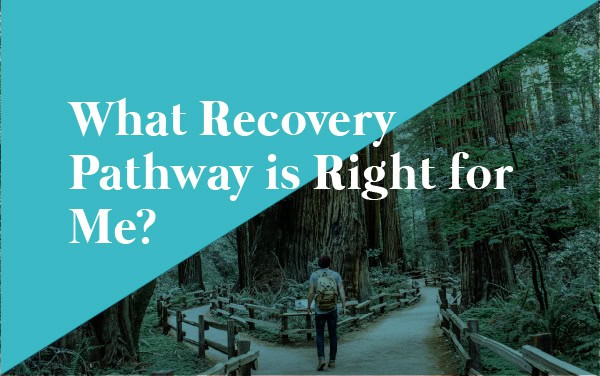
by Kerri MacFarlane | Jul 11, 2023 | Alcohol Free, Blog, Early Sobriety, Helpful Tips
In our Dry January course, REstore, Paul teaches a class covering the different recovery modalities. The good news is that In 2023, there are more ways to ditch the booze than ever before. Even just 10 years ago recovery took place in church basements with bad coffee and shitty donuts, but today the landscape is much different.
**Side note, Paul still goes to an AA meeting, in a church basement with bad coffee. He’s not dawging that way of recovery, he loves his Tuesday night AA meeting, but there are so many more methods, programs, techniques…you name it…available today.
So which pathway is right for you?
A couple caveats before we begin.
Caveat 1. If you are READY then ANY pathway is going to work for you. If you’re truly sick and tired of being sick and tired, then any of these programs will work. In addition, you HAVE to give them a solid try.
Caveat 2 – There is no right or wrong way to quit drinking. We’re going to give some recommendations, but it’s up to you to figure out what works best for you.
When building your recovery portfolio you want this work to be 50% external – 50% internal. At first, the internal work may be too big of an ask, but as your nervous system settles down, you want to aim for a balanced split.
Here are some quick examples of what external vs internal is:
External
- Driving to an AA meeting, or hopping on a Café RE zoom chat
- Phoning a sober friend
- Working with a sponsor
Internal
- Meditation
- Journaling
- Reading quit lit
When building out your recovery pathway Paul recommends this 5 tiered approach. .
5 Tiered Approach
- Community
- Action/Movement
- Inner Peace
- Knowledge
- Universe
- Community – Let’s talk programs that are community focused.
A.A., Smart Recovery, Dharma Recovery, Life Ring, Women for Recovery, Café RE, The Lucky Club, Meetup.com, online sober communities, Reddit, talkingsober.com, our sober Ukulele Course, Dry January and Photo courses, phoning a sober friend, 1:1 Interaction within another person in recovery. Meeting with a counselor or therapist falls under this community approach.
All of these tiers are important but this one is a BIG ONE. In order for you to get the most out of this, you have to first burn the ships, with yourself, then with your community. Burning the ships = Accountability which then = Community.
- Action/Movement
Yoga, dance, music, ecstatic dance, hiking, stretching, running, swimming, drumming on your desk. Your body is meant to move. Chemicals of wellbeing, endorphins, dopamine, and serotonin are released when we move. 3x a week, for 20 min is a good starting point.
- Inner Peace/Creation
Meditation, breathwork, sunrises, sunsets, time spent in nature, time spent with animals, float tank, relaxing, chanting, journaling, inner child work, singing, playing music, painting, writing poetry. This is where you create your new life that no longer requires alcohol. One reason why pen to paper is so effective is you can’t write as fast as the mind can think, so it slows down the thinking mind.
About animals – their nervous systems are much more intact, or less frenzied than ours. Animals live life from the hearts opposed to their human counterparts who live mostly in thought. A recent study shows that similar amount of oxytocin is released when we hug a dog compared to when we hug a human. And flip side to that, oxytocin, or the love molecule is released in dogs, when we pet them. If you’re feeling fraught, visit a petting zoo or kick it with a pet. Human nervous systems can attune themselves to more stable nervous systems, even those of animals.
- Knowledge
This is learning. This is empowering yourself with information. Podcasts, quit lit books, audiobooks, learn about healthy diets, learn about how the mind works. No you cannot read or listen yourself out of an addiction, but this is an important tier. Under this umbrella includes medicines both from the east and west. Perhaps Naltrexone, or the Sinclair method is something you may want to try. Naltrexone is a medication that blocks the euphoria response when we drink alcohol. Perhaps more shamanic approaches with medicines such as ayahuasca, psilocybin, San Pedro or Ibogaine may be right for you.
- The Universe
Lets get clear, this is not religion, but it is the spirituality component of recovery. One of the beautiful purposes of an addiction is it can flex the layers of the ego so much that they eventually snap…letting in what some will call their higher power.
When you say lines to yourself like, “I can’t live like this anymore.” The Universe is right there with you saying, “no problem, let me show you the way.”
Now go slow with the universe. This was the last of the five tiers to implement itself in Paul’s sobriety journey. This one most likely is on the universe’s clock and not yours. But be open, pay attention to the breadcrumbs of life and don’t be afraid to ask for assistance or guidance from the universe at any time.
There’s a well remixed line that has been floating around for several thousand years. Ask and you shall receive.
To recap, 50% internal, 50% external and hit a couple things from the five tiers ,and you’ll be just fine.
Remember, your recovery is always changing, because you are. It should change. What you’re doing now should look different than what you were doing a month or year ago.
***Taken from Recovery Elevator Podcast, Episode 425, host Paul Churchill***
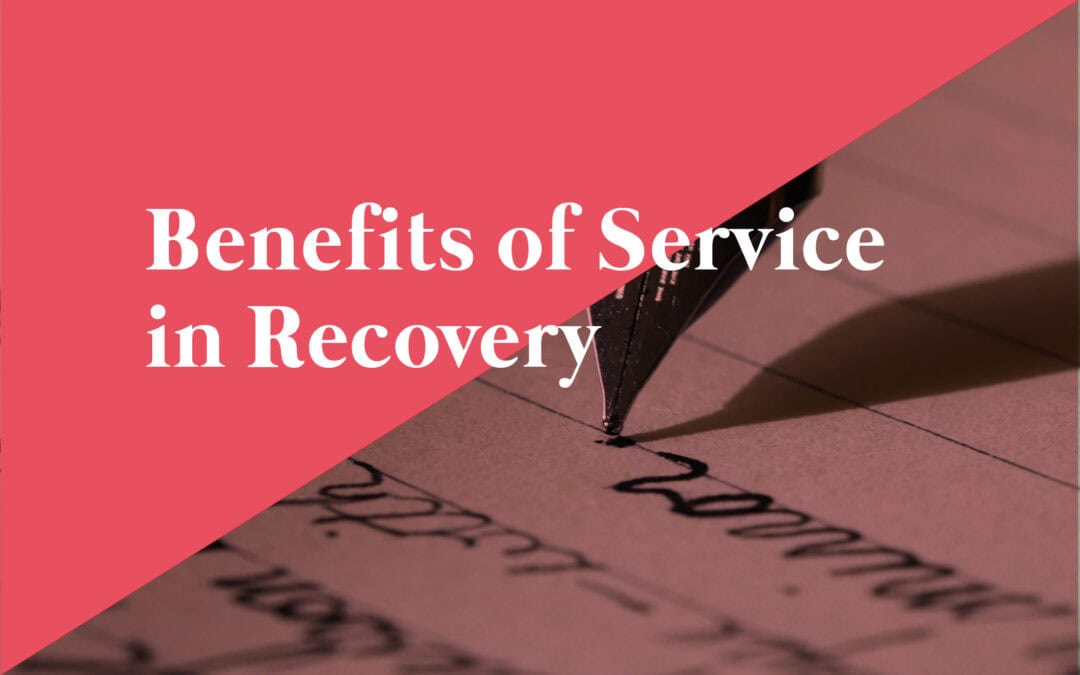
by RE Helper | Jun 13, 2023 | Alcohol Free, Blog, Helpful Tips, Resources, Service
Recovery Elevator is excited to offer a new type of blog experience to our readers! We are reaching out to our Café RE members and giving those that are interested the opportunity to be guest bloggers for our site. Think of it as a podcast interview in written form. You will get parts of their story along with tips and tools that they have found beneficial in their own recovery journey. Please let us know what you think, or perhaps topics you would like to see covered, in the comments.
I’m excited to bring our first guest blog submission to you today! Stephanie McCarroll has been a member of Café RE since August 2020, has been alcohol free since January 12, 2020 and is very active within the community. You can often find her on one of our daily ZOOM chats, if not hosting it, offering support and accountability to our members. Thank you Steph!!
Benefits of Service in Recovery
By Stephanie McCarroll
One of the most important aspects of long term recovery is being of service to others. At the early stages of sobriety, my focus was to get through the day sober. While sobriety continues to be my most valuable thing I have, my life moved past just getting through the day without a drink. A greater need arose in myself to heal and thrive in all areas of my life: physically, mentally, emotionally, socially and spiritually.
Like the disease we have, recovery is also progressive.
True recovery is a path beyond simple abstinence. Rather, it is a journey by which we build strength to face the wounds that may have led to addiction and create a flourishing sober life. Being a helpful and valuable part of my recovery community is an integral part of such a life, and it is deeply nourishing to our social and spiritual wellbeing.
Alcohol isolated us.
It demanded we put our substance abuse above all others in our lives. Some of us feel a great deal of guilt for the time lost to our addiction. Although we cannot go back and erase our mistakes, our addiction gave us insight of what slavery to alcohol looked like. Hearing that other alcoholics could stop and recover was something that inspired us to keep fighting. We were no longer alone. We had evidence we could recover.
For those who have shared their stories, they chose to be of service, giving powerful testimony of the benefits of living an alcohol free life. In recovery, the idea of service could be a new, daunting thought. Yet, giving back to our communities provides us with so many benefits.
Science has proven that being of service positively affects your brain and mental health. According to research, when you give your time and resources to people in need, your brain activates pleasure sensors, giving you a feeling of wellbeing. In this way, being of service in recovery is a form of self-care and lifts our spirits. It also helps us to manage stress.
It also helps us rediscover our self-worth. It means being part of something bigger. At Cafe RE, members are encouraged to find ways to be of service wherever possible. Because Cafe RE is an intimate community, members volunteer to host chats and participate in community service projects.
In recovery, my art of writing has been rediscovered. Like those who had a fondness for music and photography, I wanted to reach out to the writers. This prompted me to inquire about the possibility of forming a members-driven Guest Blog for Recovery Elevator. Paul said YES!
In finding the right service opportunity for you, it can be helpful to tune into your passions and what makes you come alive. Being in recovery is a beautiful gift that gives you the chance to pursue the things you love most about life, things that may have been robbed from you during your addiction.
If you would like to give back to the recovery community and guest blog, please contact kmac@recoveryelevator.com. We know our members have a lot to say and want to be of service. We are excited for this new endeavor and know it will help a lot of people.
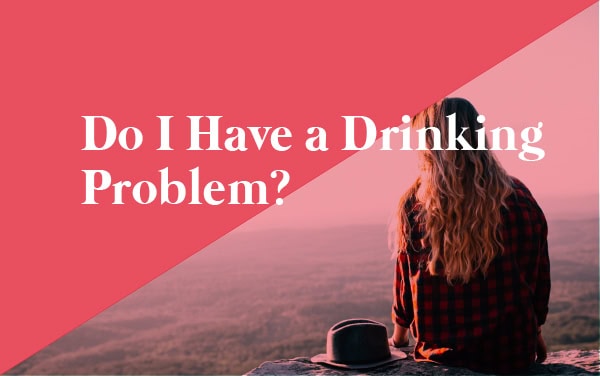
by Kerri MacFarlane | May 15, 2023 | Alcohol Free, Blog, Helpful Tips, Resources
Today is the day! Today is the day we are going to find out if you have a drinking problem…or not. Are you ready?
For Paul, when it finally sunk in that he did indeed have a drinking problem (and a good one at that!) two things happened.
First…he was like, “Oh F&#K!”
Then…immediately after, as this truth spread into his body, to his bones, to his conscious, his unconscious, to the heart, to the liver, something neat happened. An incredible amount of energy was instantly liberated.
For two reasons.
- The stigma or label of an alcoholic didn’t change who he was. He was still alive.
- But more importantly…all the energy, the incessant thinking he had of…
- Do I drink, or not?
- Do I have a problem, or not?
- How am I going to control my next session of drinking?
- How am I going to hide it?
- Let’s do our best not to black out before 8 pm.
- Do I have enough shitty box wine back home?
- Let’s not let people know we’ve already had 9 drinks before meeting up at the bar.
ALL of that went away instantly.
In fact the worst place a person can be with a drinking problem is in limbo. The do I or don’t I phase. (Paul covers this in Episode 417).
So for this diagnostic, we are going to use the test listed in the DSM 5, or the diagnostically statical manual which is what most psychologists and/or therapists have somewhere on their shelves.
There’s 11 YES or NO questions. If you answer YES to 2 of the questions, if you meet 2 of the 11 criteria, within the past 12 months, they call it an Alcohol Use Disorder.
THE TEST
- Do you sometimes have difficulty controlling how much you drink or for how long you drink alcohol?
- Have you made unsuccessful attempts to cut down your drinking?
- Do you sometimes spend a significant amount of time drinking or recovering from drinking?
- Has your alcohol use had any negative consequences at home, school, or work? (Have you ever lost time off work because of your drinking?)
- Has your alcohol use had any negative consequences to your relationships or social life? (Have you ever concealed how much you drink? Has anyone ever commented on your drinking?)
- Have you continued to use despite any negative consequences?
- Have you put off things or neglected to do things because of your alcohol use? (Have you ever disappointed your family or friends? Have you ever missed a family event?)
- Do you occasionally have strong cravings for alcohol?
- Has your tolerance for alcohol increased? Are you able to drink more than you did before?
- Have you experienced withdrawal symptoms the next day after drinking? (Have you ever been shaky or sweaty that evening or the next day?)
- Has your alcohol use led to any dangerous situations? (Have you ever been charged with impaired driving?)
Paul has always strived to be a good student, and was “happy” to report a score of 100%. 11/11. For shits and giggles, let’s’ cover what it means if you didn’t ace this like he did.
WHAT IT ALL MEANS
The presence of at least two of these symptoms means you have an AUD. If you have two to three symptoms, it’s considered mild; four to five symptoms is considered moderate; six or more symptoms is considered severe. (If you don’t fall into the severe category, a mild diagnosis can still warrant concern, as it may be the start of a larger problem.)
A couple things before we wrap this up. If you have a drinking problem, life isn’t over…in fact, it’s just beginning.
Some of you may have just learned you have a drinking problem. If this is devastating to you, go to Episode 411 where Paul talks about the grateful alcoholic.
Paul had one more bit of info in his notes from Episode 428 If you find yourself listening to a sobriety podcast (or reading this blog), and you’re not a therapist, a doctor, or listening so that you can support a loved one, then YOU have a drinking problem. If you question whether or not you have a drinking problem, you just answered that question. The bigger question is…what are you going to do about it?
***Taken from Recovery Elevator Podcast, Episode 428, host Paul Churchill***
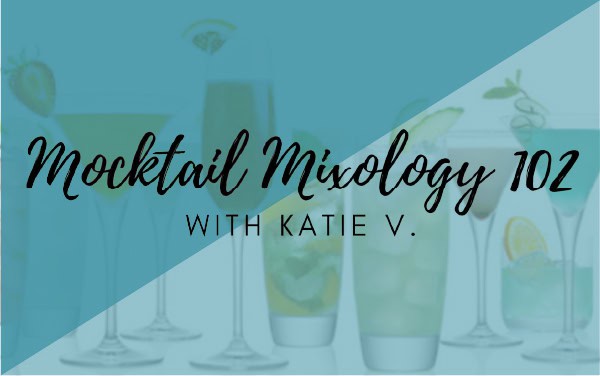
by RE Helper | Apr 16, 2023 | Alcohol Free, Blog, Mocktail, Recipe
I hope I’m not disappointing my 4 readers (hi Roxanne, Robyn, Kerri and Trisha!) No mocktail recipe this month. But I will throw in my favorite homemade ice cream recipe as of late for a little change up. Lately my mocktails have been top secret as I’ve been writing one for a friend that’s getting married this month.
Being my reflective self, I realized that it 2 years ago exactly I hosted my first a mocktail class with Café RE. I’m really proud of myself for becoming comfortable enough with myself to be known as someone who makes mocktails. And not just mocktails, but delicious ones that people request.
We can say it, Sobriety is weird sometimes. How do you make friends? What do you do with your hands?
When does my “ASK MY ABOUT MY BEING SOBER” tee shirt arrive that is now a requirement to wear to all parties?
All of a sudden you can feel 14 again, but actually be 39. So figuring out who you are next can be hard and takes some time to get comfortable in a new skin. I liked to make and drink cocktails before I stopped drinking, so why should that stop just because there’s no more booze in my drink? Happy to be making cocktails still.
All that said and now here’s your recipe for this month.
Birthday Cake Ice Cream
Serves 1 (because Ice cream isn’t meant for sharing)
Ingredients
- 2 C heavy cream
- 1 C whole milk
- ¾ C sugar
- ⅛ t sea salt
- 1 t vanilla extract
- 1 t almond extract
- 1/4 cup sprinkles or jimmies
1- Pour 1 cup of the cream into a saucepan and add the sugar, salt and vanilla. Warm mixture over medium / low heat until the sugar has just dissolved. Remove from the heat and add the remaining cream, milk, and almond extract. Stir to combine and chill in the refrigerator for 2 hours.
2- Once chilled Whisk mixture and pour into ice cream maker. Make according to manufacturer’s instructions. Last 5 minutes add sprinkles and finish churn.
3- Eat.
Until next time!
Love and Mocktails,
Kate








